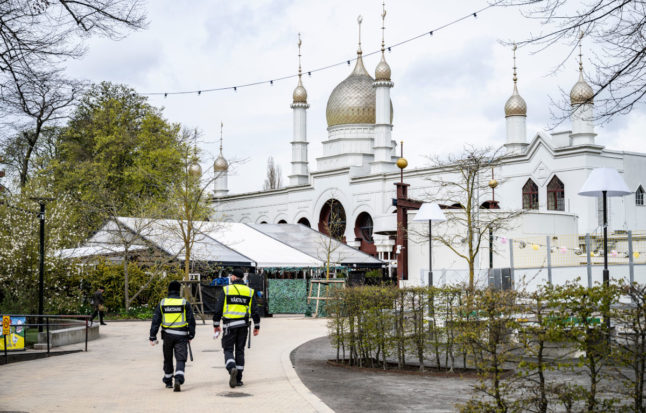“We are in the midst of an economic winter, with weak growth and rising unemployment. The economic situation is challenging, but the decreasing inflation is a sign of improvement,” said Finance Minister Elisabeth Svantesson as she submitted her budget to parliament.
KEY POINTS:
The bill contains investments to the tune of 17.3 billion kronor, in stark contrast to last year’s spring amendment budget which added only four million to the main autumn budget. Of these, 16.8 billion kronor is allocated to new proposals, rather than various automatic increases.
The government said in a statement that its primary aim was to “lay the foundations for recovery, higher growth and better welfare” as inflation drops and any recession impact is made clear.
Most of the investments had already been announced in dribs and drabs before the day.
“We are reinforcing healthcare with additional resources to the regions and investments for more jobs,” said Svantesson in the statement, as she awarded healthcare services six billion kronor.
Swedish regions have previously warned that they may have to lay off healthcare staff due to the financial crisis, although the centre-left opposition has criticised the six billion as not enough.
“Safety and security in Sweden must increase, which is why we are making additional investments in law enforcement authorities and defence,” continued Svantesson, pouring 1.4 billion kronor into increasing prison cells, and 1 billion to stepping up airport security and baggage handling.
Swedish inflation according to the consumer price index fell to 4.1 percent last month, lower than expected, but Svantesson warned that the tough economic situation wasn’t over.
“We can clearly see that the fight against inflation has produced results, but we must remain persistent and lay the foundations for making Sweden safer, more secure and wealthier,” she said.



 Please whitelist us to continue reading.
Please whitelist us to continue reading.
I really hope Sweden can learn from what Milei is doing in Argentina and picks up multi-decade old knowledge from Austrian school of Economics. Stop printing money, cut state costs, increase economic freedom. Economy will thrive after that. On the contrary, we’re heading towards massive stagnation and continued “economic winter”.